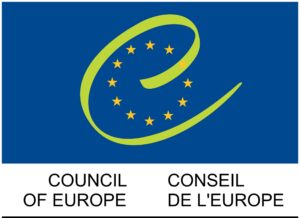Council of Europe Confirms International Treaty on Match Fixing
The Council of Europe, the pan-European organisation that serves as the continent’s leading human-rights organization, has announced that an international treaty dealing with how match-fixing in sport should be handled will go into effect on September 5, 2019, following its full ratification by a fifth Council member country.
Treaty No. 215, titled “Council of Europe Convention on the Manipulation of Sports Competitions”, was ratified earlier this month by Switzerland, following earlier ratification by Norway, Portugal, the Republic of Moldova, and the Ukraine. The fifth full ratification triggers the treaty to go into effect across all 36 Council of Europe countries that approved the treaty since its passage back in 2014. A 37th country, Australia, also approved the treaty and will be bound by its conventions.
 The Council of Europe — not to be confused with the newer European Union — dates to 1949 and was the first Europe-wide group to emerge from the horrors of World War II with a focus on preventing human-rights abuses. Its mission has modulated somewhat in more recent times, though it remains focused on all issues with a human-rights flavor, such as safety at sporting events, even if issues such as sports betting and match-fixing are on the fringes of its topical reach.
The Council of Europe — not to be confused with the newer European Union — dates to 1949 and was the first Europe-wide group to emerge from the horrors of World War II with a focus on preventing human-rights abuses. Its mission has modulated somewhat in more recent times, though it remains focused on all issues with a human-rights flavor, such as safety at sporting events, even if issues such as sports betting and match-fixing are on the fringes of its topical reach.
Despite those limitations, however, the Council has pursued the topic with some fervor, having previously signed pacts with both EUFA and FIFA in areas of joint interest regarding football, safety, match fixing and illegal sports betting. The Council of Europe also works with ESSA, the European Sports Security Association, that monitors European sports betting for suspicious activity. ESSA even helped draft the convention, which is more formally known as the Macolin Convention and is being billed by the Council of Europe as “the only legally-binding international treaty promoting global cooperation to tackle the manipulation of sports competitions”.
Even in its congratulatory quote on the convention’s full ratification, however, ESSA Secretary General Khalid Ali noted that issues still remain with the treaty, particularly with language concerning “illegal” sports-betting operations. Ali said: “The Convention sets out a range of practical measures to address match-fixing internationally and it has been broadly supported by ESSA and the wider betting sector. Ratification of the Convention is therefore a predominantly positive move. However, there remain hurdles to overcome. The definition of illegal sports betting, in particular, continues to present challenges to universal acceptance of the Convention text.”
That definition is an absolutist viewpoint asserting that each individual party to the treaty dictates its own definitions of and responses to “illegal” sports wagering, continuing in its own way the battle between the European Union and many of its member countries over the rights of firms domiciled in EU countries to offer online services across the EU. Eventually, the European Union gave up that battle, to the ongoing chagrin of the gambling industry.
In the Council of Europe’s take on these matters, measures such as blacklisting and closure/seizure of financial channels are quite alright indeed. Here’s the summary of the treaty as offered by the Council, which is long on these topics, relatively speaking:
The purpose of this Convention is to prevent, detect, punish and discipline the manipulation of sports competitions, as well as enhance the exchange of information and national and international cooperation between the public authorities concerned, and with sports organisations and sports betting operators. The Convention calls on governments to adopt measures, including legislation, notably:
- Prevent conflicts of interest in sports betting operators and sports organisations;
- Encourage the sports betting regulatory authorities to fight against fraud, if necessary by limiting the supply of sports bets or suspending the taking of bets;
- Fight against illegal sports betting, allowing to close or restrict access to the operators concerned and block financial flows between them and consumers.
Sports organisations and competition organisers are also required to adopt and implement stricter rules to combat corruption, sanctions and proportionate disciplinary and dissuasive measures in the event of offences, as well as good governance principles. The Convention also provides safeguards for informants and witnesses.
Another 11 Council of Europe member countries have declined to sign the treaty, among them Malta, increasingly the home of many Europe-facing online sports betting operations. And even among those countries who have fully ratified the convention, Switzerland and Portugal have nullified language pertaining to certain prosecutorial responsibilities.
- convention
- Council of Europe
- Macolin Convention
- online
- ratify
- sports betting
- Switzerland
- treaty





